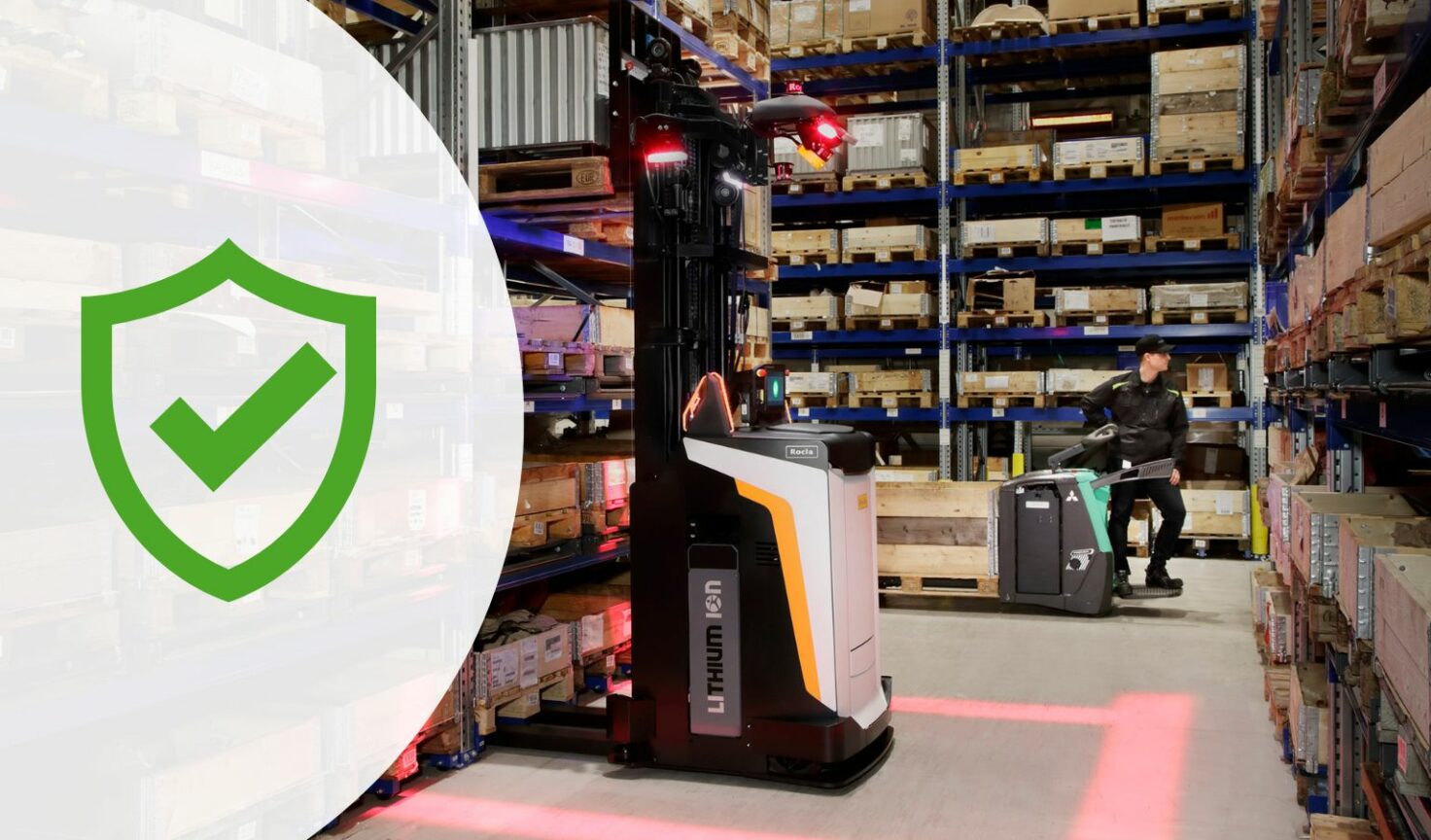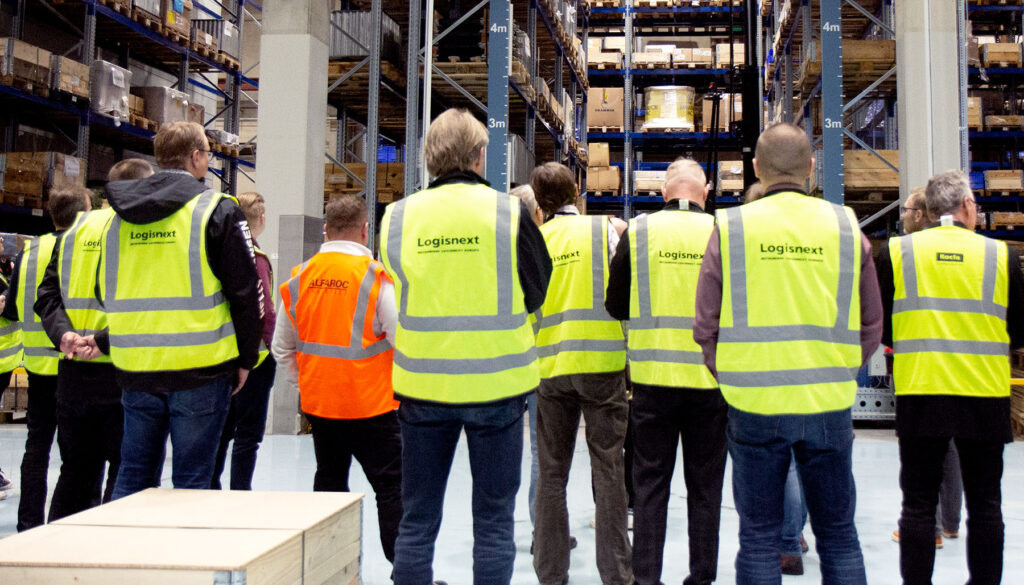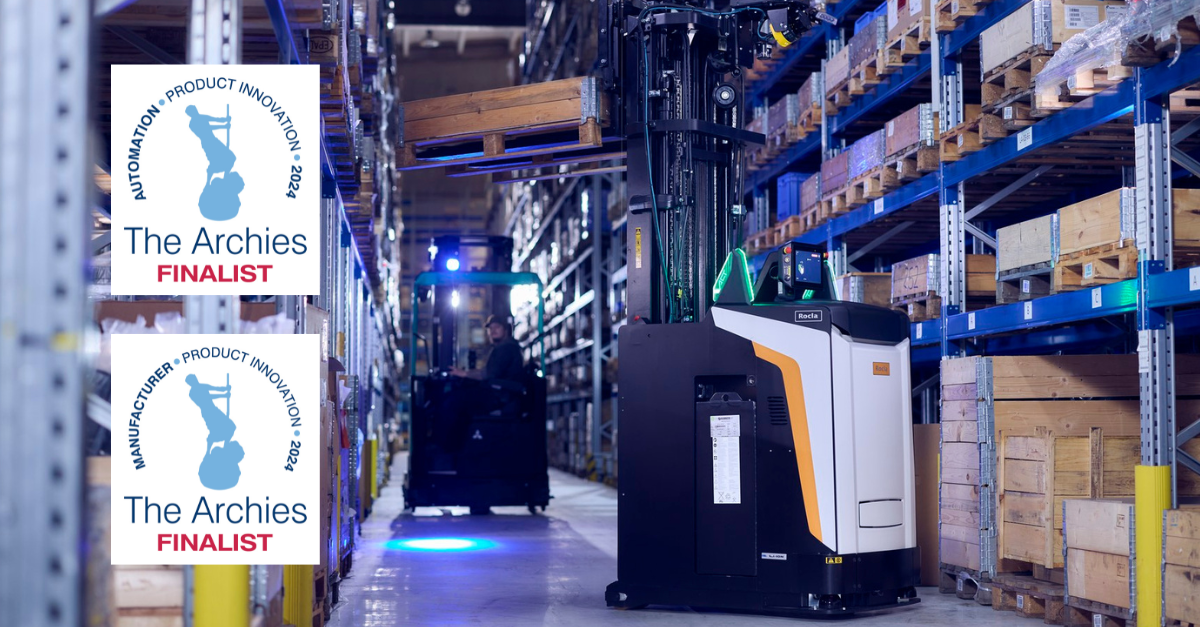ISO 3691-4 – What’s it all about?
ISO 3691-4 is a state-of-the-art standard that defines the safety requirements for automated forklift trucks, their systems, and the means to ensure their safety. The standard is currently relevant, as it has just been updated and will soon receive harmonisation status with the EU Machinery Directive, which, together with national legislation based on it, will ensure that automated forklift trucks placed on the EU market meet the essential health and safety requirements. If you are considering buying an automated forklift truck, here are some tips on what to pay attention to before making a purchase decision.

Assurance of safety and uninterrupted operations
The EU Machinery Directive (2006/42/EC) sets out the essential health and safety requirements that machinery must meet. These requirements can be met by complying with standards, such as ISO 3691-4, that are harmonised with this directive. By purchasing products with these standards mentioned in the EU Declaration of Conformity, you, as a customer, can be sure that the product you are about to invest in complies with EU regulations and requirements. They indicate vehicle safety while also implying employee safety and uninterrupted operation.
“ISO standardisation is vital, and naturally, we have issued the CE mark to our AGVs as well. Rocla AGVs are designed with safety in mind, and all our operations have been built to achieve the standard and even significant changes made to the safety logic of our vehicles. For example, all Rocla AGVs have two safety scanners in the front, and a rear security scanner as standard, comments Matti Rintala, Solution architect, Solutions Management at Rocla AGV and continues:
“Safety fields are essentially related to the standard because the new standard requires more from them. In the past, straight fields in front were enough, but now, the standard requires safety fields to cover all directions of movement, including the direction the vehicle is turning. Side monitoring is related to the new standard’s requirement that the vehicle must reduce its speed when the detected space on the side is less than 0.5 m. In addition, the standard requires that in certain situations, and in the absence of lateral space, the vehicle must not restart automatically after a stop caused by the safety field. Until now, the vehicle has been allowed to continue operating as long as the safety field stops detecting the target.”

The harmonisation process for ISO 3691-4 standard will proceed in stages. The EU Commission gives a mandate to a standardisation organisation to develop a standard compatible with the EU Machinery Directive. When the standard is ready, the Commission checks it against the requirements of the directive. Once the conformity of the standard has been verified, the EU Commission publishes the reference of the standard in the Official Journal of the EU. Manufacturers can then obtain a presumption of conformity for their products by complying with this standard and referring to it in the EU Declaration of Conformity. Compliance with harmonised standards is the most straightforward way for companies to obtain a presumption of conformity, namely confidence and guarantee that the directive’s requirements are met.
Investing in safety is investing in better business
The standard and its requirements are the same for everyone, but there may be differences in the interpretation of the standard.
“At Rocla AGV Solutions, we interpret the standard very strictly, as safety is not just another necessary feature but part of everything we do and are proud of. We believe that investing in safety also benefits the overall operations and thus is a necessity for a respectable company to be able to do good business,” Rintala says.
The fundamental idea of the ISO 3691-4 standard is to make a customer’s life easier. The customer does not need to be an expert in AGV safety in order to observe and demand the right things since the standard has been prepared by experts. Thus, the customer can trust that the most important things will be in order with a supplier that assures compliance with the standard. The standard benefits not only the customer but also the entire industry by creating the rules of the game, as it ensures, for example, that no one can lower prices by compromising safety. This means safer and better business for everyone!


